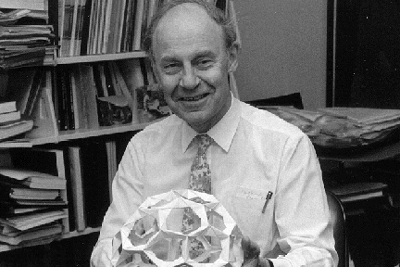Reforming science education is a topic on the minds of many educators these days. And several scholars are making things happen.
Dudley Herschbach, the Baird Professor of Science and professor of chemistry and biological chemistry at Harvard University in Cambridge, Mass., and Nobel Prize winner, will discuss “Science Education Reform” at 4:30 p.m. April 3 in Century Room B at the Millennium Student Center at the University of Missouri–St. Louis.
Herschbach is currently working with the National Academy of Sciences on a conceptual framework for revising K-12 science education standards. He will talk about the state of science education today and what steps need to be taken in the future.
He received the Nobel Prize in chemistry in 1986 for his contributions concerning the dynamics of chemical elementary processes.
Herschbach’s research interests include quantum mechanics, chemical kinetics, molecular spectroscopy and collision theory. His current research is devoted to methods of orienting molecules for studies of collision stereodynamics and means of slowing and trapping molecules in order to examine chemistry at long wavelengths, reactions in catalytic supersonic expansions and a dimensional scaling approach to strongly correlated many-particle interactions, in electronic structure and Bose-Einstein condensates.
He earned a bachelor’s degree in mathematics and a master’s degree in chemistry at Stanford (Calif. )University. He earned an artium baccalaureate degree in physics and a doctoral degree in chemical physics from Harvard.
The discussion is sponsored by the College of Education at UMSL, College of Arts and Sciences at UMSL and the St. Louis Metro Area School Districts.
It’s free and open to the public, but reserving a seat is required. Call 314-516-5109 or email diane.goodwin@umsl.edu for reservations.















